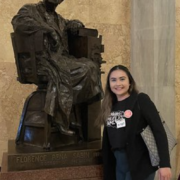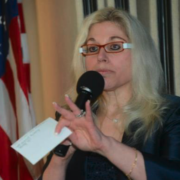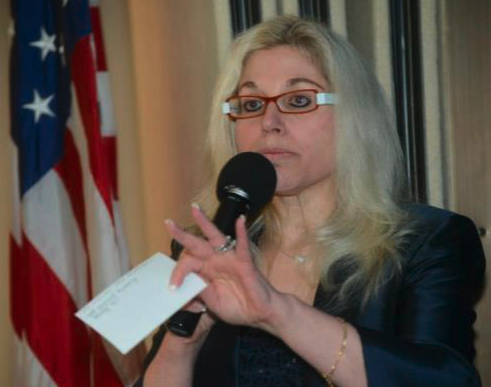July 26, 2023
Media contact: National Consumers League – Katie Brown, katie@nclnet.org, 202-823-8442
Washington, D.C. – NCL and other consumer groups submitted the below letter to Chair Cantwell and Ranking Member Cruz to urge support for S. 1303, the “TICKET Act”.
July 25, 2023
The Honorable Maria Cantwell Chair
Committee on Commerce, Science, & Transportation
United States Senate
254 Russell Senate Office Building Washington, D.C. 20510
The Honorable Ted Cruz Ranking Member
Committee on Commerce, Science, & Transportation
United States Senate
512 Dirksen Senate Office Building Washington, D.C. 20510
RE: Consumer groups urge support for S. 1303, the “TICKET Act”
Dear Chair Cantwell and Ranking Member Cruz:
The eleven undersigned consumer organizations represent the tens of millions of fans who attend concerts, sports, theater, and other live events every every year 1, generating more than $130 billion in economic impact.2 Despite the profits fans’ entertainment spending creates for this important industry, the process of obtaining tickets to a live event is often fraught with deception and unfair business practices. From a fan’s point of view, trying to get an affordable ticket to see their favorite band, cheer on their hometown team, or enjoy a night at the theater is a rigged game.
It is for this reason that the undersigned organizations have endorsed S. 1303, the Transparency in Charges for Key Events Ticketing Act (“TICKET Act”).3 We thank you for introducing this bipartisan consumer protection measure and we urge your colleagues on the Commerce Committee to support the bill when the committee considers it this week.
Reforms like those in the TICKET Act are urgently needed to ensure fans can access affordable live event tickets from both primary and secondary ticket sellers. The bill mandates all-in pricing of tickets, which addresses a significant source of frustration for consumers when purchasing tickets. Add-on fees, commonly labeled as “service fees,” “processing fees,” and “facility fees,” are typically added to the cost of the ticket as buyers progress through the ticket-buying process. On average, these fees raise the cost of a tickets by 27 percent and 31 percent on the primary and secondary market, respectively.4 The TICKET Act’s all-in pricing requirement will ensure that consumers see the full cost of a ticket the first time a ticket is advertised. This will allow fans to make a more informed buying decisions before they begin the buying process. Competition will also be enhanced, since competing ticketers on the secondary market will not be able to hide the true cost of a ticket behind a deceptively low advertised price.
The TICKET Act also includes reforms that would address a second significant frustration for ticket buyers: undisclosed speculative ticketing. This practice, also known as “spec ticketing,” involves resellers listing tickets they do not possess for sale on resale websites and secondary ticket exchanges. Speculative selling is a controversial ticketing practice since consumers are often deceived into thinking they are buying tickets the reseller possesses. There are numerous examples where consumers who thought they had a ticket to an event were later told that the speculative ticket reseller was unable to obtain the ticket.5 The TICKET Act addresses this problem by requiring ticket sellers to disclose clearly and conspicuously, prior to a consumer selecting it for purchase, when the seller does not have possession of a ticket being listed for sale. This would benefit consumers by allowing them to make a more informed choice about whether to take the risk that a speculatively resold ticket order may not be fulfilled.
On behalf of America’s live event fans, we thank you for your leadership on this issue and we urge your colleagues to join our organizations in support of this important pro- consumer and pro-competition bill.
Sincerely,
National Consumers League
Consumer Action
Consumer Federation of America
Consumer Federation of California
Fan Freedom Project
National Association of Consumer Advocates
Protect Ticket Rights
Public Knowledge
Sports Fans Coalition
U.S. Public Interest Research Group
Virginia Citizens Consumer Council
cc: Members of the Senate Commerce Committee
1 Live Nation Entertainment. “Live Nation Entertainment Reports Fourth Quarter & Full Year 2022 Results.” Press release. (February 23, 2023) Online: https://www.livenationentertainment.com/2023/02/live-nation- entertainment-reports-fourth-quarter-full-year-2022-results/; Fischer, Ben and Broughton, David. “NFL per- game attendance makes big jump.” Sports Business Journal (January 16, 2023) Online: *https://www.sportsbusinessjournal.com/Journal/Issues/2023/01/16/Upfront/nYl-attendance.aspx; National Basketball Association. “NBA sets all-time records for attendance and sellouts during 2022-23 regular season.” Press release. (April 10, 2023) Online: https://www.nba.com/news/nba-sets-all-time- records-for-attendance-and-sellouts-during-2022-23-regular-season; The Broadway League. “2022–2023 Broadway End-Of-Season Statistics Show That Broadway Had Attendance Of 12.3 Million And Grosses Of $1.58 Billion.” Press release. (May 23, 2023) Online: *https://www.broadwayleague.com/press/press- releases/20222023-broadway-end-of-season-statistics-show-that-broadway-had-attendance-of-123-million- and-grosses-of-158-billion/
2 Oxford Economics. The Concerts and Live Event Industry: A Signi9icant Economic Engine (July 26, 2021) Online: https://www.oxfordeconomics.com/resource/livemusic/
3 “S.1303 – 118th Congress (2023-2024): TICKET Act.” Congress.gov, Library of Congress, 26 April 2023, https://www.congress.gov/bill/118th-congress/senate-bill/1303.
4 United States Government Accountability OfYice. Event Ticket Sales: Market Characteristics and Consumer Protection Issues (GAO-18-347). Pg. 15 (April 12, 2018) Online: https://www.gao.gov/assets/gao-18-347.pdf
5 Burchill, Caitlin. “Burlington man learns his expensive Taylor Swift tickets don’t exist days before concert,” NBC Connecticut. (June 13, 2023) Online: https://www.nbcconnecticut.com/investigations/nbc-ct- responds/burlington-man-learns-his-expensive-taylor-swift-tickets-dont-exist-days-before- concert/3048419/; Oberle, Marisa. “PROBLEM SOLVERS: Potential ‘controversial’ practice leaves Kent Co. family without Taylor Swift tickets,” FOX 17-West Michigan. (June 21, 2023) Online: *https://www.fox17online.com/news/problem-solvers/problem-solvers-controversial-practice-leaves-kent- co-family-without-taylor-swift-tickets-day-before-concert
*Links are no longer active as the original sources have removed the content, sometimes due to federal website changes or restructurings
###
About the National Consumers League (NCL)
The National Consumers League, founded in 1899, is America’s pioneer consumer organization. Our mission is to protect and promote social and economic justice for consumers and workers in the United States and abroad. For more information, visit nclnet.org.



 By Health Policy Intern Grace Lassila
By Health Policy Intern Grace Lassila

 By Child Labor Coalition Intern Jacqueline Aguilar
By Child Labor Coalition Intern Jacqueline Aguilar















